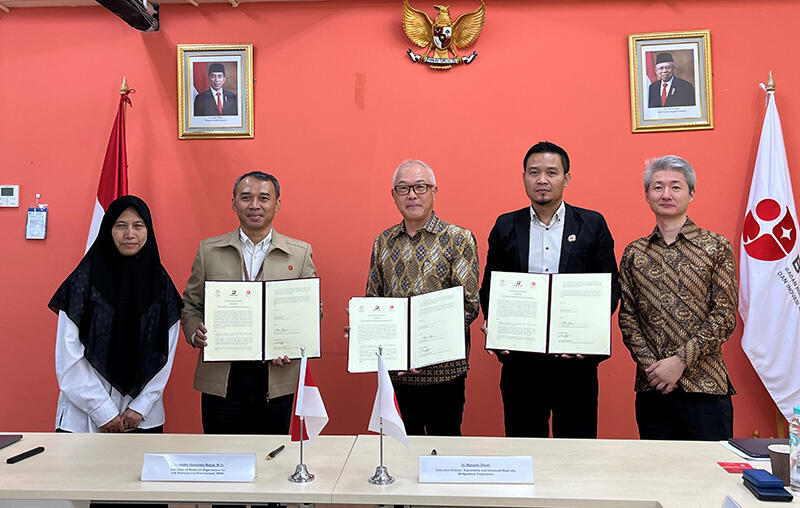RPRA Registrant Survey on Billing and Payment Processes
From October 7 to October 18, 2024, RPRA is conducting a survey to gather feedback from…
Poursuivre la lecture
Oct 8
Bridgestone Corporation announces today that it has joined a project conducted by the Fukuoka Bio Community*1 and has commenced a collaborative research initiative with Kyushu University and National Research and Innovation Agency (Indonesian: Badan Riset dan Inovasi Nasional, BRIN) of Indonesia. The goal of the research project is to develop prevention technology for White Root Disease (WRD) in Para rubber trees and to contribute to the improvement of productivity at natural rubber plantations.
 Photo of the Signing Ceremony
Photo of the Signing Ceremony
Bridgestone places sustainability at the core of its management and business and aim to build a foundation for creating sustainability value. This project is part of an effort to implement its unique Sustainability Business Model that links our business to the realization of carbon neutrality, a circular economy, and nature positivity across the entire value chain, from »produce and sell » and « use » of products to their « renewal » to raw materials. By reinforcing activities for the sustainable use of natural rubber, the project aims to contribute to nature positivity.
Natural rubber is a key raw material in tire manufacturing and is an essential renewable resource for producing high-quality tires. Also, it is a renewable resource that provides livelihood opportunities for millions of people around the world. It is said that more than 6 million people are involved in the cultivation of natural rubber. WRD, which affects rubber trees, a natural rubber resource, is a disease that causes tree death by infecting the roots with pathogenic fungi and causing tissue decay. Since the onset is difficult to detect and to discover, it poses a challenge to the sustainable and stable supply of natural rubber. By developing technology to prevent infection by the fungi causing the disease, the project aims to stabilize the yield of natural rubber and improve the stable productivity of natural rubber plantations.
Kyushu University and BRIN will select candidate microorganisms and substances that inhibit the proliferation of the pathogenic fungi in plants and soil, and Bridgestone will conduct tests of these infection prevention technologies at its own natural rubber plantation in Indonesia. The goal is to establish preventive technology by 2030, and in the future, to expand and support the operation of this technology and know-how for small farmers who are key contributors to natural rubber production, thereby promoting productivity improvements and enhancing the quality of life among small farmers and building a sustainable supply chain for the natural rubber industry.
Bridgestone will lead this project within the Fukuoka Bio Community, which is promoted in collaboration with Fukuoka Prefecture and Kurume City, where the company was founded. By promoting co-creation through industry-academia- local communities’ collaboration, Bridgestone thereby strives to fulfill the corporate commitment of « Ecology: Committed to advancing sustainable tire technologies and solutions that preserve the environment for future generations » described in « Bridgestone E8 Commitment. »*2
Source: Bridgestone
L'Association canadienne du pneu et du caoutchouc
5409 Eglinton Ave W, Suite 208
Etobicoke, ON M9C 5K6
Tel: (437) 880-8420
Email: [email protected]